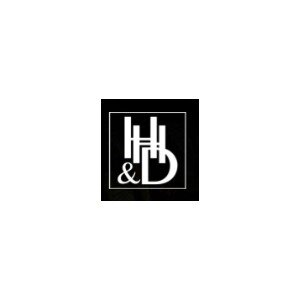Best Nonprofit & Charitable Organizations Lawyers in Roseau
Share your needs with us, get contacted by law firms.
Free. Takes 2 min.
List of the best lawyers in Roseau, Dominica
About Nonprofit & Charitable Organizations Law in Roseau, Dominica
In Roseau, Dominica, nonprofit and charitable organizations play a vital role in addressing social issues, promoting arts and culture, and supporting community development. These organizations operate within a framework that ensures they meet local legal requirements, adhere to governance standards, and operate transparently. Nonprofit and charitable organizations in Roseau must register and comply with the regulatory standards set forth to maintain their tax-exempt status and benefit from government incentives. The legal landscape serves to encourage the growth and sustainability of these organizations while safeguarding public interest.
Why You May Need a Lawyer
There are several situations where seeking the assistance of a lawyer knowledgeable in nonprofit and charitable organization law might be essential. Starting a nonprofit requires navigating complex registration processes and understanding regulatory requirements. Lawyers can assist in drafting and reviewing bylaws, ensuring compliance with tax laws, and advising on fundraising activities. Legal expertise is also crucial when addressing potential disputes, regulatory audits, and matters related to governance or employment within the organization. Having legal support can ensure that the organization operates effectively within the legal frameworks and avoids costly legal mistakes.
Local Laws Overview
The key aspects of local laws affecting nonprofit and charitable organizations in Roseau, Dominica include the requirement for registration under the Companies Act for legal recognition. Organizations must prepare a constitution outlining their purpose and governance structure. They are also expected to maintain transparent records and submit annual reports. Tax exemptions are available but require adherence to specific criteria and regular compliance assessments. Furthermore, laws related to employment, fundraising, and data protection are applicable. Adhering to these laws is essential to maintain the organization's good standing and operational efficacy.
Frequently Asked Questions
How do I start a nonprofit organization in Roseau, Dominica?
To start a nonprofit organization, you must register it with the relevant authorities under the Companies Act. Drafting a constitution and bylaws, selecting a board of directors, and complying with tax regulations are essential steps.
Are there tax benefits available for nonprofit organizations in Dominica?
Yes, nonprofit organizations meeting specific criteria are eligible for tax exemptions. However, compliance with reporting and operational requirements is necessary to maintain these benefits.
What is the difference between a nonprofit and a charity?
A nonprofit is a broader category, including any organization that does not operate for profit, whereas a charity specifically focuses on activities aimed at improving social welfare, typically qualifying for extra tax benefits.
Can a nonprofit organization engage in fundraising activities?
Yes, nonprofits can engage in fundraising activities, but they must comply with local regulations regarding transparency and accountability in fundraising practices.
What role does a board of directors play in a nonprofit?
The board of directors provides governance, oversight, and strategic direction for the nonprofit. They are accountable for ensuring the organization meets its legal obligations and operates effectively.
How often must a nonprofit submit reports to the government?
Nonprofit organizations are required to submit annual financial and operational reports to ensure continued compliance with legal and tax regulations.
Can a nonprofit organization pay salaries to its employees?
Yes, nonprofit organizations can pay salaries to employees, provided that compensation is reasonable and necessary for performance of work in furtherance of the organization's mission.
What are the consequences of non-compliance in a nonprofit organization?
Consequences may include loss of tax-exempt status, penalties, or legal actions. Persistent non-compliance could result in dissolution of the organization.
Is a nonprofit organization allowed to make a profit?
While nonprofit organizations can generate income, any surplus funds must be reinvested into the organization's mission rather than distributed as profits.
How can I dissolve a nonprofit organization in Dominica?
Dissolution involves a formal process including settling debts, distributing remaining assets in accordance with organizational bylaws, and filing a notice of dissolution with the regulatory bodies.
Additional Resources
For legal assistance and further information, you can consult the Companies and Intellectual Property Office (CIPO) in Dominica. Additionally, reaching out to local law firms specializing in nonprofit law or engaging professional nonprofit consultants can provide valuable insights and guidance. The Dominica Association of Nonprofit Organizations (DANO) is also a useful resource for networking and support.
Next Steps
If you require legal assistance in nonprofit and charitable organizations in Roseau, Dominica, it's advisable to first clearly define your legal needs or issues. Then, seek consultation with a lawyer who specializes in nonprofit law. Prepare all relevant documentation including your current bylaws, financial records, and previous communications with regulatory bodies. This will help in discussing your situation in detail and developing an effective legal strategy tailored to your organization's needs. Consider attending workshops or legal clinics on nonprofit governance to build internal capacity for handling legal matters.
Lawzana helps you find the best lawyers and law firms in Roseau through a curated and pre-screened list of qualified legal professionals. Our platform offers rankings and detailed profiles of attorneys and law firms, allowing you to compare based on practice areas, including Nonprofit & Charitable Organizations, experience, and client feedback.
Each profile includes a description of the firm's areas of practice, client reviews, team members and partners, year of establishment, spoken languages, office locations, contact information, social media presence, and any published articles or resources. Most firms on our platform speak English and are experienced in both local and international legal matters.
Get a quote from top-rated law firms in Roseau, Dominica — quickly, securely, and without unnecessary hassle.
Disclaimer:
The information provided on this page is for general informational purposes only and does not constitute legal advice. While we strive to ensure the accuracy and relevance of the content, legal information may change over time, and interpretations of the law can vary. You should always consult with a qualified legal professional for advice specific to your situation.
We disclaim all liability for actions taken or not taken based on the content of this page. If you believe any information is incorrect or outdated, please contact us, and we will review and update it where appropriate.











